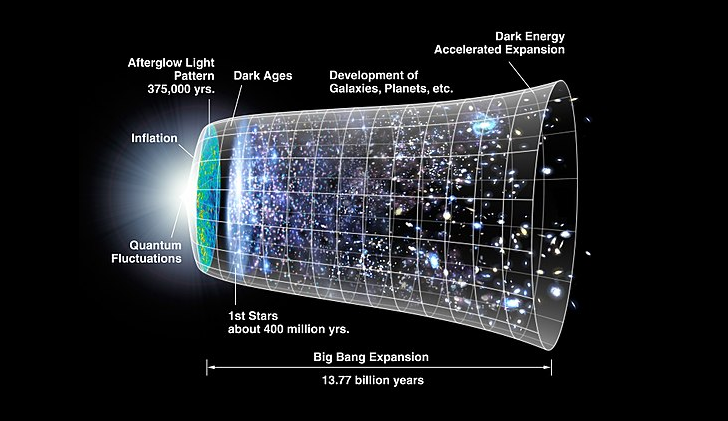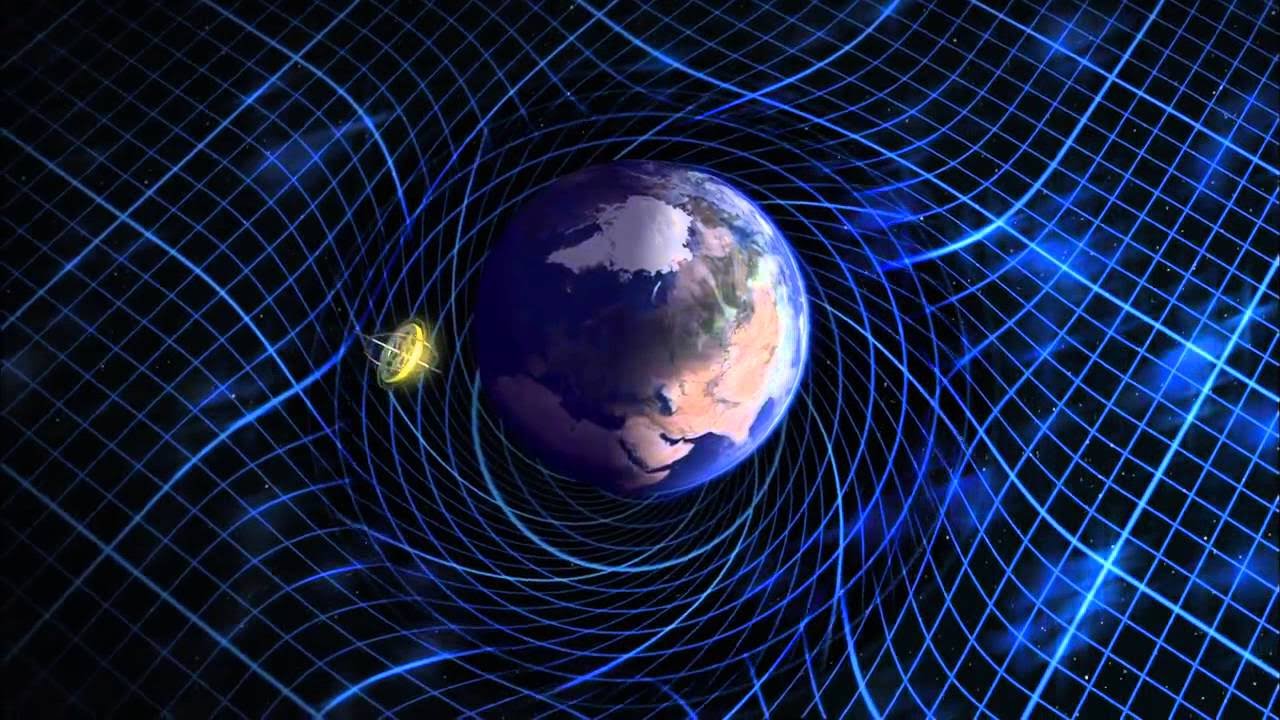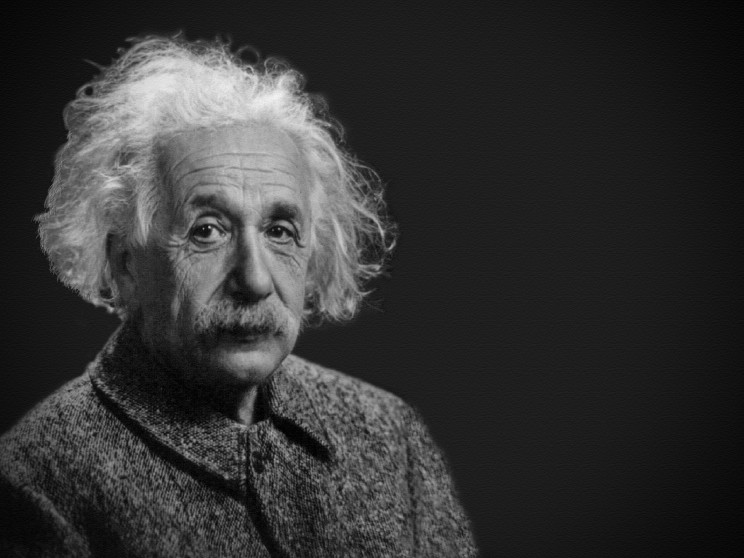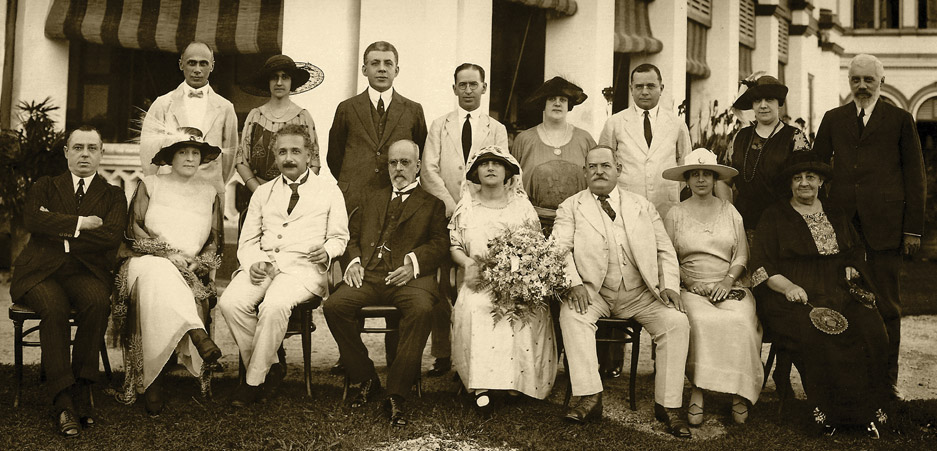Although scientists tried to disprove his ideas, Einstein always won. But that doesn’t mean that he didn’t make any mistakes, of course.

1. Cosmological Constant
When we consider Einstein, the biggest mistake he made in his life was to define the cosmological constant. After Einstein completed the formulation of the General Theory of Relativity in 1917, he discussed the space-time structure of the entire universe. That’s when he ran into a problem.

Einstein assumed that the universe was uniform and static. But the equations of general relativity do not contain a time-independent solution for a universe in which matter is uniformly distributed. Therefore, Einstein modified his equations by adding a new term he called the cosmological constant. It was later discovered that the universe is not static and is expanding. Einstein regretted that he had unnecessarily altered his original theory. “Then get rid of the cosmological constant,” he exclaimed when he learned in later years that the universe was actually expanding. This term has earned him a reputation as his greatest gimmick.
However, even Einstein’s mistakes are instructive. When astronomers learned to their amazement that the rate of expansion of the universe is increasing—the galaxies are expanding faster as time goes on—they began searching for the dark energy responsible for this mysterious force. The cosmological constant is still a leading claim as a fictitious factor that changes our perception of how space-time interacts with energy.
2. Gravitational Waves
Scientists have announced that they have directly detected gravitational waves in the past years. This determination meant a great confirmation of Einstein’s work, the existence of which he predicted about 100 years ago. However, for a time Einstein himself doubted that it really existed.

In the 1930s, 20 years after the publication of general relativity, he was prepared to publish a paper describing the non-existence of these fluctuations after all. Eventually he became convinced of their existence again, and of course now that we’ve seen them, we know they’re real.
3. Rejecting Quantum Mechanics
Another mistake Einstein made was the discussion he had with Niels Bohr on quantum mechanics, which began at the Solvay congress in 1927 and lasted until the 1930s.

Bohr presented his formulation of the “Copenhagen interpretation” of quantum mechanics, which states that we can only calculate the probabilities of possible outcomes of experiments. Einstein vehemently opposed Bohr’s idea, saying that the laws of physics do not deal with probabilities and that God does not play dice on the cosmos. But history did not make its decision in favor of Einstein; Quantum mechanics went from success to success, leaving Einstein alone.
4. Minor mistakes
While we might like to think that a genius does not at least make simple calculation mistakes, there is evidence to the contrary. Einstein had his fair share of mistakes, from mistakes made in different proofs of the formula E = mc2, to failing experiments, or even simply ignoring basic mathematical rules.

If you say what are these errors, you can take a look at this list of 23 known errors here.
5. Initiatives on Unified Field Theory
Einstein’s rejection of quantum mechanics caused him to be isolated from other physics research from 1930 until his death in 1955.
Perhaps Einstein’s biggest mistake was being a prisoner of his success.
After Einstein’s success in explaining gravity with the geometry of space-time, he tried to include gravity in his “Unified Field Theory” based on geometric principles.
For centuries, researchers have tried to describe all the fundamental forces of nature and how they interact within a single theory. This theory, called the unified field theory, failed the efforts of Albert Einstein, who had been working on it for years.
In physics, a field is defined as a region under the influence of some force, such as gravity or electromagnetism. A field theory generally refers to why physical phenomena occur and how these phenomena interact with nature.
Einstein tried to develop a unified field theory in the 1920s but was unable to progress in his work because at that time all interactions were not yet known. While electromagnetism and gravity were well known, the study of atoms was in its infancy.
Einstein based his work on the work of other scientists who tried to convert spacetime into five dimensions. Einstein’s study of space-time consisted of four dimensions and an extra set of equations representing Maxwell’s equations for electromagnetism. Other scientists working on this subject were Hermann Weyl, Theodor Kaluza and Oskar Klein.
Einstein’s first paper on the theory was published in 1922. Later, Einstein tried to come up with a theory that combined the metric tensor, which measures the curvature of space and time. Einstein continued to work on both methods for the last thirty years of his life, but without success.
Had Einstein expanded the dimension of space-time from five to six or larger numbers, he could have discovered the field theory created in 1954 and its generalized version, the modern theory of strong, weak, and electromagnetic interactions.
6. Family Matters
Of course, this may not reach the level of other matters, but let’s end by remembering that Einstein, this scientific revolutionary and one of the smartest men of all time, also married his first cousin, Elsa Löwenthal. (Not only were their mothers brothers, their fathers were cousins, and their second cousins would also marry.)

While their marriage appeared to be relatively happy, the biological effects of this kind of consanguineous marriage, which lasted until his death in 1936, were, well, not so great.
Resources:
– blogs.discovermagazine, Prof. Dr. Steven Weinberg, “Einstein had his faults too”, Science and the Future, April 2006
– mathematical.org (translation)
-haberazad.com / Tarkan Tufan (Translation)
– mathematical.org (translation)
-haberazad.com / Tarkan Tufan (Translation)
